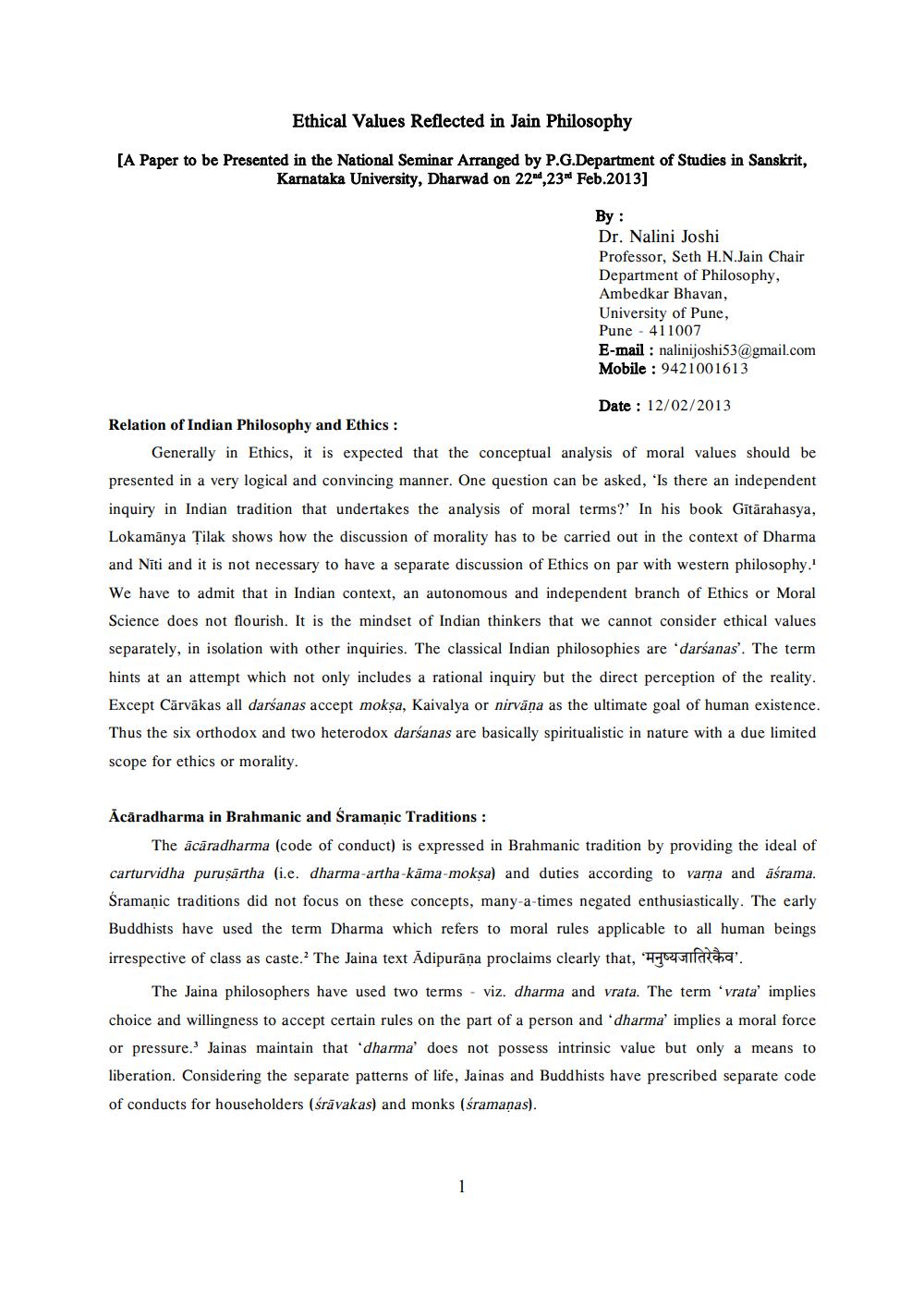Book Title: Etical Values Reflected in Jain Philosophy Author(s): Nalini Joshi Publisher: Nalini Joshi View full book textPage 1
________________ Ethical Values Reflected in Jain Philosophy [A Paper to be presented in the National Seminar Arranged by P.G.Department of Studies in Sanskrit, Karnataka University, Dharwad on 22nd, 23rd Feb.2013] By: Dr. Nalini Joshi Professor, Seth H.N.Jain Chair Department of Philosophy, Ambedkar Bhavan, University of Pune, Pune - 411007 1 E-mail: nalinijoshi53@gmail.com Mobile: 9421001613 Date: 12/02/2013 Relation of Indian Philosophy and Ethics : Generally in Ethics, it is expected that the conceptual analysis of moral values should be presented in a very logical and convincing manner. One question can be asked, 'Is there an independent inquiry in Indian tradition that undertakes the analysis of moral terms?' In his book Gītārahasya, Lokamanya Tilak shows how the discussion of morality has to be carried out in the context of Dharma and Niti and it is not necessary to have a separate discussion of Ethics on par with western philosophy.' We have to admit that in Indian context, an autonomous and independent branch of Ethics or Moral Science does not flourish. It is the mindset of Indian thinkers that we cannot consider ethical values separately, in isolation with other inquiries. The classical Indian philosophies are 'darśanas'. The term hints at an attempt which not only includes a rational inquiry but the direct perception of the reality. Except Cārvākas all darśanas accept mokṣa, Kaivalya or nirvana as the ultimate goal of human existence. Thus the six orthodox and two heterodox darśanas are basically spiritualistic in nature with a due limited scope for ethics or morality. Acaradharma in Brahmanic and Śramanic Traditions : The acaradharma (code of conduct) is expressed in Brahmanic tradition by providing the ideal of carturvidha puruṣārtha (i.e. dharma-artha-kama-mokṣa) and duties according to varṇa and asrama. Śramanic traditions did not focus on these concepts, many-a-times negated enthusiastically. The early Buddhists have used the term Dharma which refers to moral rules applicable to all human beings irrespective of class as caste. The Jaina text Adipurana proclaims clearly that, Henfatha". The Jaina philosophers have used two terms - viz. dharma and vrata. The term 'vrata' implies choice and willingness to accept certain rules on the part of a person and 'dharma' implies a moral force or pressure. Jainas maintain that 'dharma' does not possess intrinsic value but only a means to liberation. Considering the separate patterns of life, Jainas and Buddhists have prescribed separate code of conducts for householders (śravakas) and monks (śramanas).Page Navigation
1 2 3 4 5 6
